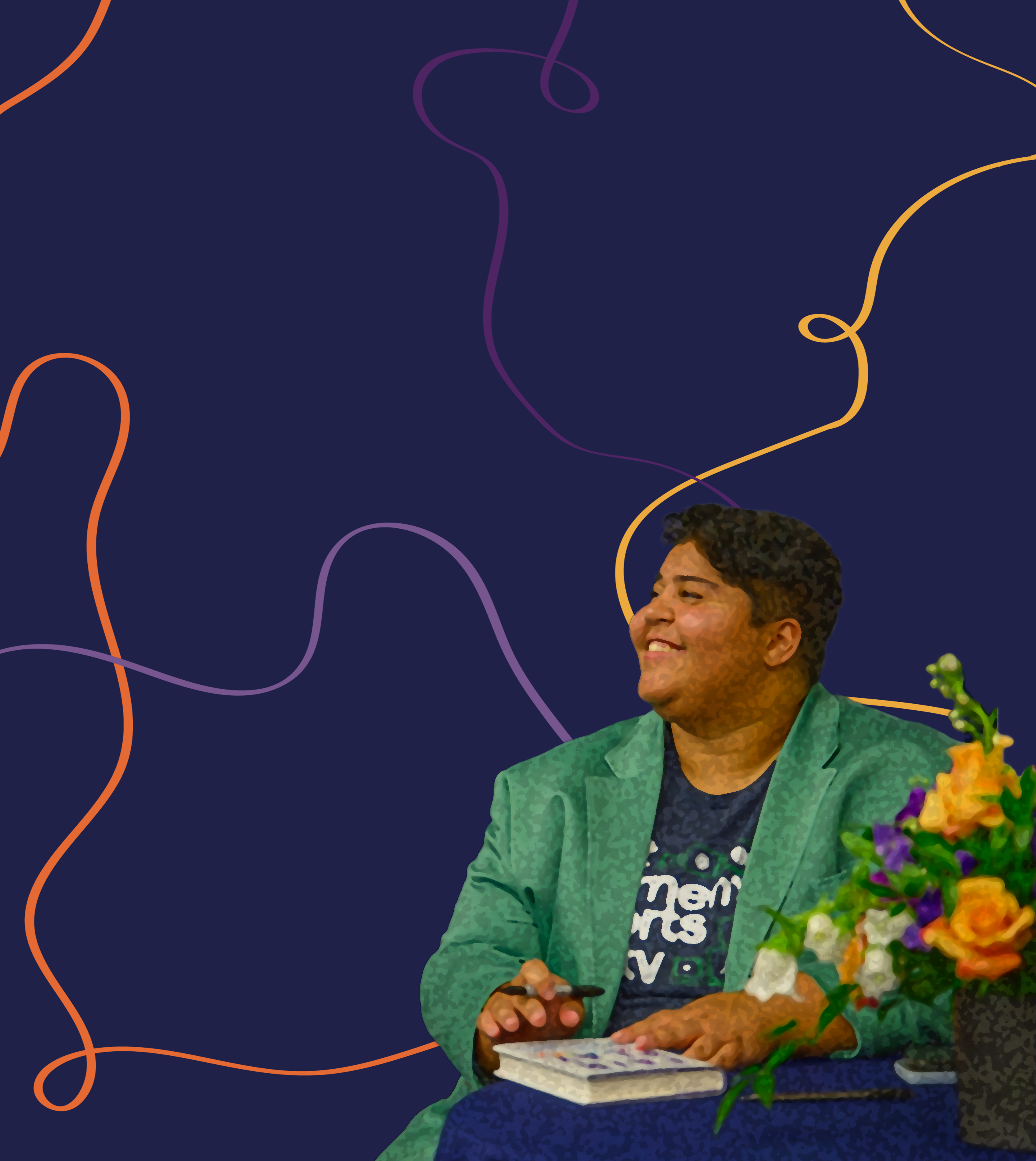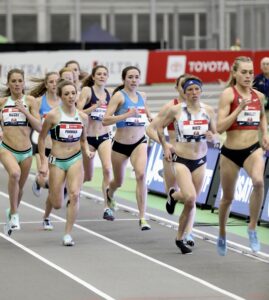On Sept. 19, ESPN reporter Katie Barnes published their first book. Titled Fair Play, it’s the result of years of research and study into the past, present, and future of transgender athletes in sports. Barnes came to Georgetown on Oct. 3 to share their conclusions as a part of the Intersectionality Series, which is comprised of several events throughout the semester put on in conjunction with multiple on-campus organizations. Prior to the event, Barnes sat down with the Voice to discuss some of the main ideas of their book.
Note: This interview has been edited for conciseness and clarity.
Jo: [In your book] you touch on how a lot of these debates center around the idea of fairness in sports. But as you point out, fairness isn’t really a thing that exists in sports at all. Why do you think it is that people latch on to fairness as, like, the big concept, as opposed to other things?
Katie Barnes: In many respects, culturally, we view sports as a meritocracy. In many ways, we view our society as a meritocracy—that everybody shows up at the starting line with an equal chance of winning. And, in reality, that’s not really the case, either in sports or society. But it is a compelling argument. We want to believe that our sports are fair, that our society is fair. And we want to believe that we succeed and fail based on our own merits, and that those merits are mostly about hard work, and not something that is, you know, as intrinsic as innate athletic talent, or the ability to pay for specialized training, or some physiological quirk. And so, the ability to single out a particular demographic that complicates that narrative a bit, is … a fairly simple argument to make.
Jo: At one point in the book, you had a line, and I’m probably not going to quote it exactly right. But … you were saying that, not only does this [a new regulation being put in place by USA Swimming] prohibit Lia Thomas from continuing a career, but it also means that there will never be another Lia Thomas. In this specific case of Lia Thomas, and people maybe who look up to her as this inspiration—who they’d like to follow—where do you think the harm is in the way that she was so specifically targeted?
Katie: I think when you look at an athlete like Lia, or Lia specifically, herself, as somebody who has borne a tremendous burden in the last year and a half, I do think there’s a lot of fear within queer and trans communities right now—specifically if you’re a transgender young person participating in sports or wanting to participate in sports, or if you are somebody who was like Lia. She competed on the men’s team, as she was figuring out the right identity. And that could easily describe an athlete at any competitive level right now, who now is wondering if there is a path forward for them in their sport. And then, of course, we see a number of laws that are restrictive being passed across the country. And so in that sense, I think it’s very hard. And I think it’s one of the reasons why we don’t hear from Lia very often. Yeah, because everything she says is so politicized. And she’s a very reserved person, right? It’s not attention that she seeks.
Jo : What was the biggest obstacle that you faced while writing this book?
Katie: So I’d signed the contract for the book in August of 2020. Idaho had happened, but Lia Thomas hadn’t. The various legislative sessions that were really bad for trans folks had not yet happened. We were at one state with a restrictive law. Now we’re at 23 … And so there are just things in the book, they’re out of date, because they’ve changed in the last six months. And so that is a challenge in terms of writing something and trying to future-proof it, and ultimately failing in that.
Jo: When people finish this book, if they feel compelled to stand up for these individuals in the best way that they can … What do you think would be the most helpful based on the research that you’ve done, and the conversations that you’ve had?
Katie: I really wanted this book to help reframe a conversation that I think has jumped the shark a little bit. I would say that the goal has never been to change people’s minds, but to encourage people to have the courage to approach this conversation with empathy and compassion and nuance, and to be willing to have a more complete conversation about what sports are for, who sports are for, and perhaps how to be willing to be more creative about what sports could look like for all ages. And so in terms of what I hope people are moved to do after this: I hope they’re moved to continue to have those conversations with the people in their lives. This question of transgender athletes has evolved from the grassroots, really. It’s been a community-driven conversation for the last five to seven years. And I think that is where change will also occur. Like, yes, of course, this is being debated in the halls of power. That’s absolutely happening. But so much of that conversation has been hijacked by our politics. And it doesn’t have to be that way. And I think for the majority of people, it really isn’t that way. And [I hope] that we can have conversations amongst one another, to really, you know, ask ourselves some of the hard questions, for sure.
Jo: Thank you so much.





